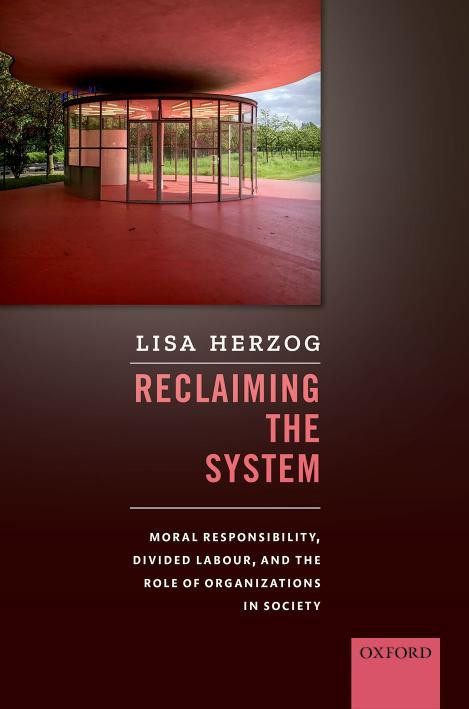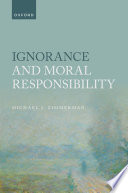Reclaiming the System Moral Responsibility Divided Labour and the Role of Organizations in Society 1st edition by Lisa Herzog 019256613X 9780192566133
$50.00 Original price was: $50.00.$25.00Current price is: $25.00.
Reclaiming the System: Moral Responsibility, Divided Labour, and the Role of Organizations in Society 1st edition by Lisa Herzog – Ebook PDF Instant Download/DeliveryISBN: 019256613X, 9780192566133
Full download Reclaiming the System: Moral Responsibility, Divided Labour, and the Role of Organizations in Society 1st edition after payment.

Product details:
ISBN-10 : 019256613X
ISBN-13 : 9780192566133
Author : Lisa Herzog
The world of wage labour seems to have become a soulless machine, an engine of social and environmental destruction. Employees seem to be nothing but ‘cogs’ in this system – but is this true? Located at the intersection of political theory, moral philosophy, and business ethics, this book questions the picture of the world of work as a ‘system’. Hierarchical organizations, both in the public and in the private sphere, have specific features of their own. This does not mean, however, that they cannot leave room for moral responsibility, and maybe even human flourishing. Drawing on detailed empirical case studies, Lisa Herzog analyses the nature of organizations from a normative perspective: their rule-bound character, the ways in which they deal with divided knowledge, and organizational cultures and their relation to morality. The volume examines how individual agency and organizational structures would have to mesh to avoid common moral pitfalls and develops the notion of ‘transformational agency’, which refers to a critical, creative way of engaging with one’s organizational role while remaining committed to basic moral norms. The volume goes on to explore the political and institutional changes that would be required to re-embed organizations into a just society. Whether we submit to ‘the system’ or try to reclaim it, Herzog argues, is a question of eminent political importance in our globalized world.
Reclaiming the System: Moral Responsibility, Divided Labour, and the Role of Organizations in Society 1st Table of contents:
1. Introduction: Subjects and Systems
1.1. Individuals In Organizations: Normative Theory’s Blind Spot
1.2. Theorizing Organizations: Social Philosophy at the Meso-Level
1.3. Reclaiming ‘the system’
1.4. Structure of the Book
Part I: Moral Responsibility in Challenging Contexts
2. Moral Responsibility, Socially Embedded
2.1. Introduction
2.2. The Attack on the Responsible Self
2.3. Saving Responsibility—In Contexts
2.4. The Responsibility for Contexts
2.5. Conclusion
3. Moral Norms in Social Contexts
3.1. Introduction
3.2. The Pervasiveness of Morality
3.3. Basic moral norms and the problem of delineating the ‘overlapping consensus’
3.4. Conclusion
4. Organizations: Hierarchies of Divided Labour
4.1. Introduction
4.2. The Division of Labour and the Role of Hierarchies
4.3. Moral Violations and The Organizational Form
4.4. Embedding Moral Norms in Organizational Structures
4.5. Conclusion
Part II: The Moral Challenges of Organizational Life
5. Rules and their Discontents
5.1. Introduction
5.2. Rules of Thumb and Genuine Rules
5.3. The Double-Edged Character of Organizational Rules
5.4. Psychological Complexities of Organizational Rules
5.5. Living with the ‘iron cage’
5.6. Conclusion
6. The Use of Knowledge in Organizations
6.1. Introduction
6.2. Knowledge in Organizations
6.3. Knowledge Gaps and Their Moral Relevance
6.4. Knowledge and Respect
6.5. Epistemic Cultures in Organizations
6.6. Conclusion
7. The Responsibility for an Organizational Culture
7.1. Introduction
7.2. The Inescapability of Culture
7.3. Organizational Culture and Moral Norms
7.4. Cultural Slopes
7.5. ‘Managing’ Organizational Culture?
7.6. Signals and Reasons
7.7. Conclusion
8. Self and Role: Transformational Agency in Organizations
8.1. Introduction
8.2. ‘Selves’ and ‘roles’
8.3. Moral Reflection and Organizational Roles
8.4. Transformational Agency: Moral Stewardship in Organizations
8.5. Offering Space for Moral Reflection: The Responsibility of Organizations
8.6. Conclusion
Part III: The Role of Organizations in Society
9. Organizations in Society: A ‘Non-ideal’ Approach
9.1. Introduction
9.2. ‘Bottom-Up’ Requirements on Social Structures
9.3. Protecting Individual Rights
9.4. Channelling Pressures on Organizations
9.5. Conclusion
10. Organizations in Society: How Good Can It Get?
10.1. Introduction
10.2. The Right to the Corporate Form
10.3. Reclaiming Knowledge
10.4. Meaningful work in ‘the system’
10.5. Democratizing ‘the system’
10.6. Reclaiming ‘the system’
People also search for Reclaiming the System: Moral Responsibility, Divided Labour, and the Role of Organizations in Society 1st:
moral responsibility definition
what is moral responsibility
moral responsibility examples
reclaiming the system
reclaiming virtue
Tags: Reclaiming, the System, Moral Responsibility, Divided Labour, Organizations, Society, Lisa Herzog
You may also like…
Politics & Philosophy - Government & Politics
Citizen Knowledge: Markets, Experts, and the Infrastructure of Democracy Lisa Herzog
Politics & Philosophy - Ancient & Medieval Philosophy
Determinism, Freedom, and Moral Responsibility: Essays in Ancient Philosophy 1st Edition
Business & Economics - Professional Finance
Financial Inclusion and the Role of Banking System Sudarshan Maity
Politics & Philosophy - Anthropology
Politics & Philosophy - Others
Politics & Philosophy












